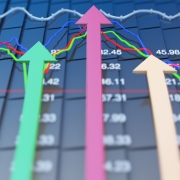How Pure Economics Will Dethrone Politics.
Can we ever separate economics from politics? The two are contradictory yet often confused.
Economics is the private use of skills, knowledge and assets to serve others via market exchange. Entrepreneurs and owners of capital (in the broadest sense – owners of knowledge, skills and experience as well as physical capital goods) are servants of consumers. Economic exchange requires entrepreneurs to ascertain what consumers want, and to assemble resources to provide those wants. If the consumer changes preferences, the entrepreneur must change production in order to continue to receive revenue and profit. The consumer is the boss. The power of entrepreneurs is subject to the choices of their customers, and capital ownership is strictly in the service of consumers.
Carl Menger offered a great example, that’s still very pertinent. A capitalist may own a machine used to produce tobacco products. The machine has value because consumers like to buy and use tobacco products. But should they, suddenly, shed their preference for tobacco products, that machine would have to be sold for scrap. Tobacco companies are re-learning this lesson today.
The Political Way.
Politics, on the other hand, is the diversion, and sometimes confiscation, of economic production by non-producers for their own ends. Politicians have established a hierarchical system of control by government, its administrative departments, its military, and its police forces. While elected politicians are, in some sense, subject to the electoral decisions of voters, that is not the case with the laws they enact (which accumulate and last beyond the duration of electoral periods) and the administrative apparatus they put in place to enforce their laws. Politicians have a coercive power of control.
The confusion between the economic way and the political way arises in the overlap of economics and politics in people’s minds. Ludwig von Mises said:
All present day political issues concern problems commonly called economic. Everybody thinks of economics whether aware of it or not. As conditions are today, nothing can be more important than economics.
Our own fate and that of our children are at stake, according to the great economist.
Dethroning Politics.
F.A. Hayek’s principle for separating politics from economics was to limit government to the setting of general rules of conduct that apply equally to everyone. These general rules can improve the chances of all by giving everyone the prospect of finding a partner for a transaction favorable to both sides – a win-win. Under these known and reliable rules, a self-organizing citizenry can collaborate, trade and exchange and spontaneously create the economic output that raises the quality of life and standard of living for all.
But politics does not limit itself to this role. It is the struggle to decide “who gets what, where and how”. It is the pitting of one coalition of special interest groups against another in a bruising battle where some must lose so others can win. It is interventionism and regulation to stifle economic activity.
Hayek wanted to “dethrone” politics. Politics, he said, has become much too important, much too costly, much too harmful, and absorbs too much total energy, while at the same time losing the respect of the general public, who regard it as an incurable evil that must be put up with.
Hayek’s solution was to dismantle monolithic governments, and limit the agencies that we could not eliminate to operate under general rules they cannot alter.
Pure Economics.
Franz Oppenheimer was a little more optimistic. He believed that monolithic government is moving through a series of stages of development and has reached a peak in its current form of the administrative state, with its infinity of rules and regulations. He believed that, ultimately, all the giant organizations of the current stage – both government and the crony capitalist companies that integrate themselves with government to benefit from its coercive powers exercised on their behalf – would lose their advantage and wilt away. What would remain is a spontaneous order of individuals engaged in unhampered mutual exchange. He called this condition “pure economics”. That’s a term we can adopt for the goal of separating politics and economics. Keep economics pure.
Per Bylund puts it this way: without the hierarchical power of coercive government, policy-makers would have no policies to make, and there would be no wheeling and dealing with capital owners. The former would need to contribute to the economy rather than be a burden on it, and the latter would be strictly servants of consumers.
The outlines of “pure economics” are beginning to take shape in today’s emerging technologies. Individual entrepreneurs can download computing power, lines of code, algorithms and processes from the cloud. The can use global platforms to set up supply chains, collaborate with others, form teams and conduct work. They can utilize A.I. to augment their individual, team and firm capacity. And they are beginning to be able to disintermediate authorities and institutions using blockchain and cryptography. Oppenheimer put it this way: the individual can now form capital and himself become an employer rather than employee. That was the language of the first decade of the 20thcentury.
In 21stcentury terms, cryptography, bitcoin, entrepreneurship, self-organization and technology will provide the foundation for pure economics, and will dethrone politics.




